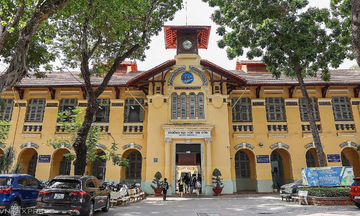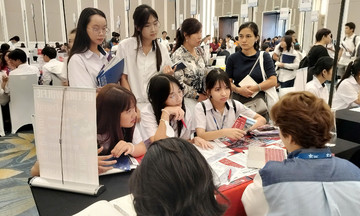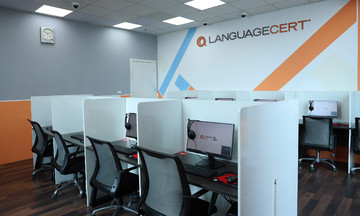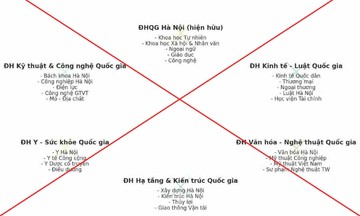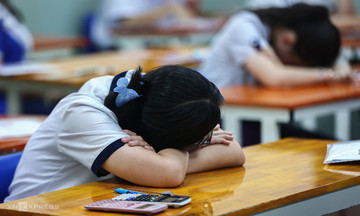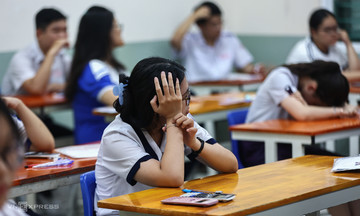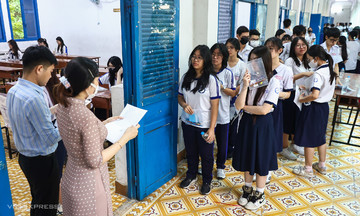At the Higher Education Conference on 18/9, Minister Nguyen Kim Son stated that Resolution 71 of the Politburo identifies the modernization of higher education as a top priority. The goal is to facilitate rapid development and clear direction for universities, creating a highly skilled workforce for the country's needs.
"This is a crucial opportunity for higher education to make a breakthrough. Failing to seize this opportunity would be a mistake," Mr. Son said.
He also noted the current disorganized state of many universities, citing issues such as the abolition of university councils, the dual role of party secretaries as heads of institutions, autonomy, and the appointment of professors and associate professors.
"In particular, the education sector is about to undergo a major restructuring of higher education institutions," Mr. Son announced.
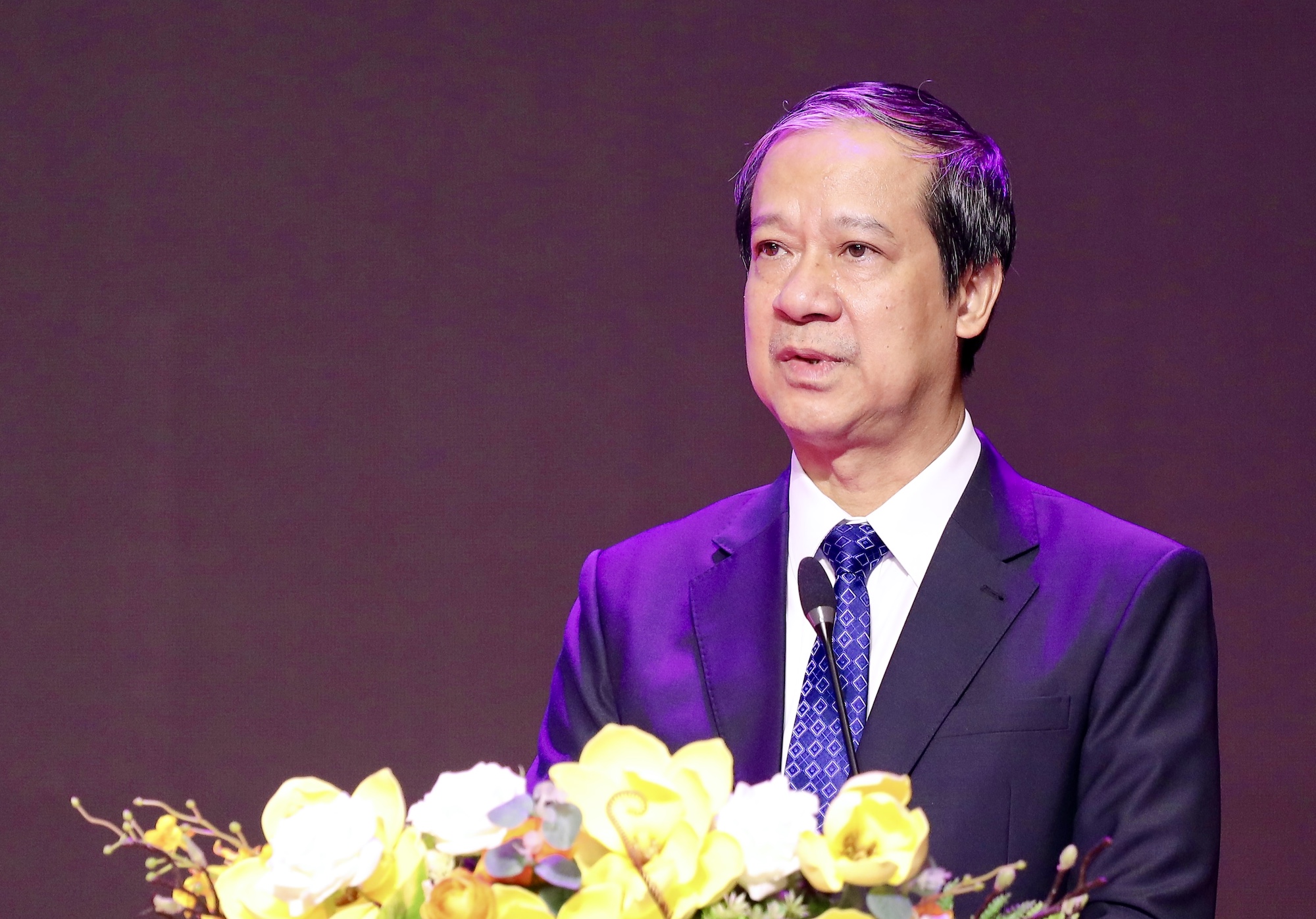 |
Minister Nguyen Kim Son speaks at the Higher Education Conference on 18/9. Photo: MOET |
Minister Nguyen Kim Son speaks at the Higher Education Conference on 18/9. Photo: MOET
Resolution 71 mandates the restructuring of universities, merging or dissolving substandard institutions, eliminating intermediary levels, exploring the merger of research institutes with universities, and considering transferring some universities to local management.
Excluding police and military academies and private institutions, the Ministry will restructure approximately 140 public universities.
"I won't disclose the exact number of institutions to be reduced, but the General Secretary and the Prime Minister have stated it will be a significant reduction," Mr. Son said.
The Ministry is currently considering several options, such as transferring centrally managed universities under ministries and branches to local authorities; merging local and central universities, and merging universities under different ministries and branches. Some institutions will be dissolved if they are too small or fail to meet standards.
According to the Minister, this restructuring aims to address fragmentation and promote growth.
"The Ministry will discuss mergers with university leaders, but ultimately, this will be a directive, similar to the merger of provinces and cities," Mr. Son explained.
The Ministry will also explore restructuring options to strengthen and improve universities. Some smaller institutions deemed essential due to their geopolitical location will be retained, but they will be required to develop rapidly.
Regarding internal restructuring within universities, Mr. Son said there will be specific plans for each institution to optimize staffing. The Ministry is proposing personnel appointments based on the merged entities.
"This is a time for restructuring and breakthroughs. Faculty members need to be prepared and positive in all situations, prioritizing fairness over personal concerns," Mr. Son emphasized. "In the next three months, we must work together to seize this opportunity and prepare for future development. This is my call to action for all faculty members at this critical juncture."
Mr. Son added that the Ministry will decentralize and delegate more authority, focusing on "firmly grasping what needs to be grasped and decisively letting go of what needs to be released."
Specifically, the Ministry will retain control over licensing, revocation of licenses, closures, and dissolutions of universities; and the appointment, dismissal, rotation, and transfer of university heads. For public universities, the Ministry will approve strategies, goals, and missions, as these institutions must fulfill public objectives.
In 3/2025, the Prime Minister approved the Network Development Plan for Higher Education and Teacher Training Institutions for the period 2021-2030, with a vision to 2050. The plan outlines the dissolution of substandard universities and branches; new public universities will only be considered under urgent circumstances. The plan encourages the establishment and expansion of private universities and branches of reputable foreign universities, particularly those focused on science, technology, engineering, and mathematics (STEM) fields.
National and regional universities will receive investment to reach regional and international standards. By 2030, Vietnam is expected to have additional National Universities in Hue and Da Nang, five key technical and technological universities, and 14 "key" teacher training colleges. The number of teacher training colleges is projected to be 48-50, a decrease of 15-17 from the current number.
Duong Tam






